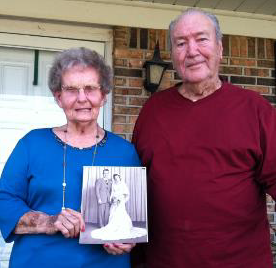The Paradox of Constant vs. Change
“The only thing constant in life is change.” – Heraclitus of Ephesus
Paradoxes are so much fun! Examples include “You can have your cake and eat it too.” or “We are simultaneously saints and sinners.” These seemingly contradictory thoughts, placed side-by-side, make one stop and think. Take for example “The only thing constant in life is change.” Constant means not changing, change means to become different, which of course is not constant. Here is a philosophical truth at work. Benjamin Franklin said that “When you are finished changing, you are finished.” The result of a constant, still, unchanging body is death. The dynamic nature of life in our universe requires constant change and adaptation. In fact, Charles Darwin’s “survival of the fittest” does not refer to survival of the strongest organism, but survival of the organism that is most able to adapt to change.
Despite these philosophical truths, I am a big fan of constant, a word connected to important themes: loyalty, predictability, family, commitment, security, and unconditional love.
Loyalty - being faithful, reliable and dependable - is fundamental to strong relationships.
Predictability is especially important as we age (otherwise, we might never find our keys!).
Family can provide the safety net of acceptance. Strong family bonds are forged by love.
Commitment occurs when people make marriage vows. It is a constant work in progress though.
Security is the state of safety and protection that should be expected in a free society.
Unconditional love is love that is given freely, without expectation of anything in return.
However, change must be totally accepted and understood for survival. Success and joy in life require that we confront our concerns and adapt to the changes which inevitably come our way.
Loyal relationships may change because of death or distance. Focus on the good memories.
Predictability, despite our best efforts, sometimes falls short. Move forward with confidence.
Families change in many ways. Change with them. We should revisit our relationships regularly.
Commitment is indeed a “work in progress” because of changing circumstances. It’s worth it!
Security and freedom are not free. We must vote, pay our taxes, and strive for what is right.
Unconditional love is easy for God, but not for us mortals. As we change, we shall inevitably disappoint others and they will do the same to us. We must love one another anyway!
In the Christian scripture Letter to the Hebrews, we read that Jesus Christ is the same yesterday and today and forever - a statement which makes the case for the ‘risen’ Savior and the life after death. Our human condition requires us to change and adapt for survival. So, when Jesus was on earth, he grew and changed and suffered as the rest of us humans do. But in eternity, we look forward to the end of suffering and the beginning of constant joy and newness of life with Jesus forever. Alleluia!
In God’s Love,
Lanny F. Wilson, MD
“Jesus Christ is the same yesterday and today and forever.” –Hebrews 13:8





Comments